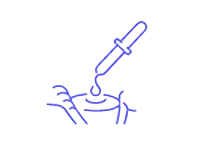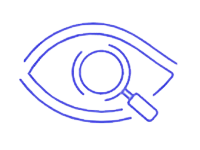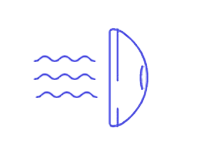The laser procedure is considered very safe. Though there are some risks, serious side effects are very rare. If a contact lens is used, your eye may be a little sore following the treatment, but this should soon wear off.
Common complications:
- For some people laser treatment for PCO can cause eye pressure to briefly rise. If your doctor is concerned about this, they will check your eye pressure soon after the laser treatment. If your eye pressure has increased, you will be provided with some eye drops or a tablet to bring it back down.
- Inflammation inside the eye-this is uncommon and responds rapidly to anti-inflammatory drops.
- Floaters- these are harmless clumps of cells which move around inside the vitreous (a jelly- like substance which fills the inside of the eye). You may see floaters as dots, circles, lines, clouds or cobwebs.
Rare but serious complications:
Rarely, laser can cause a retinal detachment which can happen days, weeks or months after the treatment. This is more likely to happen if you are very short- sighted. It is important to stress that these risks are extremely rare complications of the laser treatment. The vast majority of people get an excellent improvement in their vision following laser without experiencing any issues. If you have any concerns, the clinician performing the procedure will discuss this with you and will also describe the symptoms of retinal detachment. Please also be aware that retinal detachment surgery is normally very successful in preserving or restoring good vision.
Damage to the intraocular lens. Minor scratches are occasionally unavoidable but very rarely cause visual problems.
















